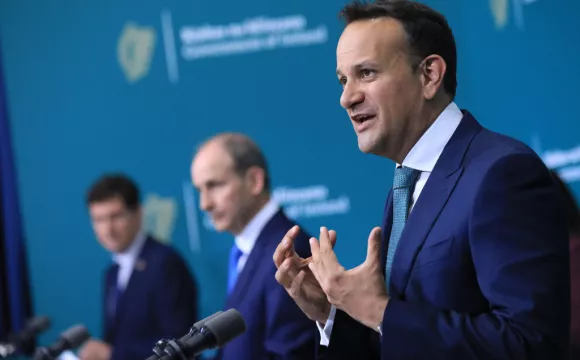Infectious diseases expert Dr Jack Lambert has said Ireland is moving too slowly in making decisions about Covid-19.
Speaking on Newstalk’s Pat Kenny show, Dr Lambert pointed out that the number of Covid cases continued to rise every day and that a decision had to be made about the reopening of the hospitality and travel industries.
To do that “everybody” had to be at the table making the decisions, he said.
“If you don’t have everybody at the table, who is making these decisions?
“The politicians say that Nphet's (the National Public Health Emergency Team) in charge and Nphet has a small remit, and there's a whole complex decision-making process.
"I think we actually have to look at Covid as an emergency, and we actually have to be making decisions on a day-to-day basis, and pro-active decisions and make plans and give things a try," Dr Lambert said.
He added that reacting to the numbers was not a strategy, it was actually a lack of a strategy.
Reluctance
There appeared to be a reluctance by the Government to go against Nphet. The chain of command and the whole organisational structure was lacking, he said.
“Of course the politicians are afraid. The politicians are afraid because before they come out with a plan, there's a communication from Nphet which puts them in a compromising position. Of course they're going to back down."
We're not doing things quickly and we're paying the price for that.
There needed to be experts on the committees making decisions, he added.
Talks about including antigen testing as a tool to re-open hospitality were too little, too late, Dr Lambert said.
“We need to do things quickly, we're not doing things quickly and we're paying the price for that.”
Some of the decisions that had been made to date were “nothing to be proud of” and there was a need to re-think the structure and the decision-making process in the future.
“Just like fighting a battle. You win a war by planning each battle ahead of time. Not 'oops, we don't have a list of people that need to be vaccinated'.
“There's still an awful lot of people - almost 50 per cent are in the age of 25 to 64 years old. Who is looking at that group and targeting vaccination of those people who have been missed?” Dr Lambert questioned.







